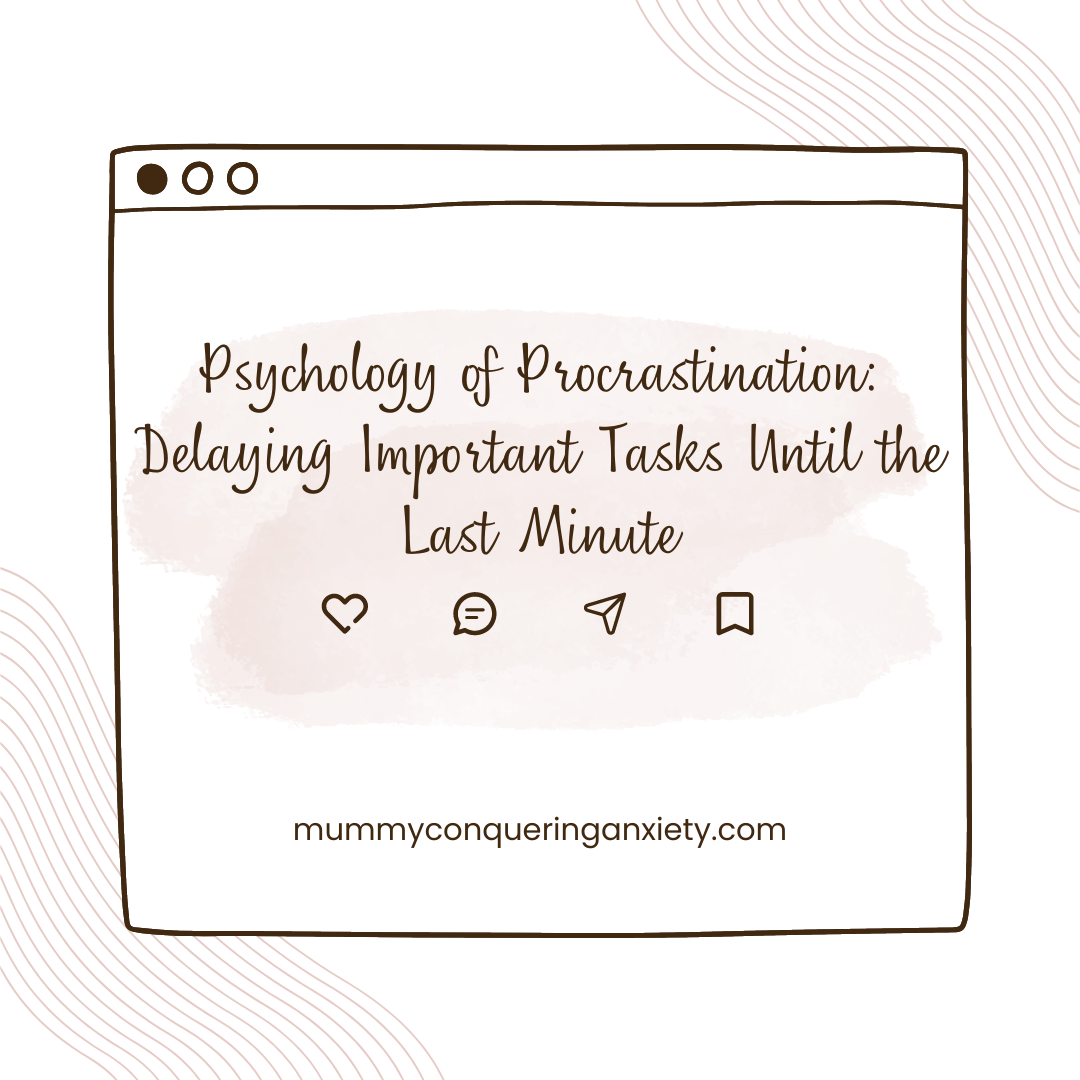Today I have a great guest post to share with you all!
Trishna Patnaik has a BSc (in Life Sciences) and MBA (in Marketing) by qualification but is an artist by choice. A self-taught artist based in Mumbai, Trishna has been practising art for over 14 years. After she had a professional stint in various reputed corporates, she realised that she wanted to do something more meaningful. She found her true calling in her passion which is painting. Trishna is now a full-time professional painter pursuing her passion to create and explore to the fullest. She says, “It’s a road less travelled but a journey that I look forward to every day.” Trishna also conducts painting workshops across Mumbai and other metropolitan cities in India.
Trishna is an art therapist and healer. She works with clients on a one-on-one basis in Mumbai.
Trishna fancies the art of creative writing and is dappling her hands in that too, to soak in the experience and an engagement with readers, wanderers and thinkers.
Quick note: Some of the links contained on this page are affiliate links and if you go through them to make a purchase, I will earn a commission. I only recommend products I use myself and think would be useful for other people.


Introduction
The word procrastination has its origin in the Latin word pro-crastinus where “pro” means “forward or in favour of” and “crastinus” means “of tomorrow”. It refers to delaying a task for a later time or sometimes completely avoiding it.
Procrastination is a highly widespread act as it could be described as someone knowing what he/she is bound to do in an assigned task and even willing to accomplish it but failing to complete the task in a given or an expected framework of time.
Procrastination is a complex phenomenon. It emphasises neglecting to do what we know we should be doing. And at times we can get very creative in our neglecting techniques. If you find yourself procrastinating daily then to know the cause for your inactivity you need to dig your soul a bit!
Why not check out my Working Mum Mini-Series?
Procrastination is one of the biggest obstacles towards productivity and a guilty refuge of creative capacity everywhere. It is something we are all guilty of, and something we all have our tactics (sometimes with varying degrees of success) to combat. So what makes us procrastinate? Why is the temptation so great, even as we know we need to complete the task at hand?
First, let us take a look at the psychology of procrastination. While everyone procrastinates to some extent, not everyone happens to be a chronic procrastinator. There are relatively harmless instances of procrastination—not starting a project until you’ve gone to the washroom, checked Instagram, refilled your coffee and even organized everything in your top desk drawer, or leaving out your least favourite task for Friday afternoon.
But there are also the very unhealthy procrastination habits that find you staring at a blank computer screen for an hour, or that leave you awake in the middle of the night in a cold sweat, agonizing over the work you didn’t complete at all, wondering how you’ll ever get it done the very next day!
Four Types of Procrastination and How to Beat Them
We all procrastinate at some point or another but most of us don’t consider the reasons why we do it. There is a tendency to assume that we procrastinate because we are weak or we would be simply doing something more fun.
Let us cover the four types of procrastinators:
1. Anxious procrastination
Procrastination is a mechanism for coping with the anxiety associated with starting or completing any task or decision. People who procrastinate a lot are usually bad at managing their time and often end up scheduling more work than they can complete, leaving no time for fun activities or resting. So not fulfilling these unrealistic expectations does cause stress and anxiety which some people deal with by procrastinating.
How to beat it
“Unschedule method” as a way to combat this anxiety-driven procrastination!
The unscheduled method involves filling your schedule with fun activities and rest before scheduling any work. For example, if you find yourself checking Facebook for 15 minutes at 3 pm every afternoon, schedule Facebook time first and plan your work around that. This scheduled fun or downtime will give you the chance to relax and prevent you from overscheduling.
2. Fun procrastination
The fun procrastinator would rather be doing anything except that one dreaded task. After all, there are so many exciting things you could be doing instead, how can you even bear to start that boring project?
How to beat it
If there’s absolutely no way you are going to start on that one dreaded task, try indulging yourself in some structured procrastination. You are going to procrastinate anyway so why not make it useful? Give in to your desire to procrastinate, but instead of watching videos of flowers on YouTube, start another item on your to-do list. By starting another item first, you’ve made the dreaded task a lower priority which (in theory) makes you dread it a lot less, and in the meantime, you are still being productive. It’s a win-win.
3. “Plenty of time” procrastination
Many people find it difficult to start a project when they know the deadline is a long way down the line. This type of procrastination is visible in people who often struggle to start an assignment earlier than a few days before the deadline.
You may also have tasks that don’t have deadlines. Take a look at your to-do list. Chances are you have at least one item that you’ve been putting off for weeks if not months. It’s something you want to do, and you know it is for the better, but you keep putting it off.
How to beat it
Please set your deadlines. The implications of the same. By setting deadlines and announcing them publicly, you will not only get the work done, but you’ll do a good job of it!
So try setting deadlines and telling your friends, family and co-workers about them. This public commitment should keep you on track and motivate you to meet those deadlines.
4. Perfectionist procrastination
Perfectionists are always striving for the best and, as such, are constantly criticizing their work. For some perfectionists, the fear of failing, or producing work to a low standard, can be so overwhelming they never get around to starting anything!
Procrastination is the enemy of success.
How to beat it
Procrastinating can be a good thing for perfectionists. As long as they have a lot of time to do a task, they fantasize about doing a perfect job. Leaving it till the last minute is a way of permitting oneself to do a merely adequate job. 99 per cent of the time a merely adequate job is all that is needed.
Do revisit the last 5 jobs you completed. Were they all perfect? Probably not! Were they sufficient? Chances are you are already working towards a high standard so do stop giving yourself a hard time. Identify the times when you didn’t do the perfect job, but the consequences were the same as when you did, this will help you to overcome your perfectionist routine and in turn, stop procrastinating.
What is cognitive psychology?
Cognitive Psychology is the branch of psychology that studies mental procedures encompassing how people contemplate discerning, recalling, and learning. As a portion of the larger field of cognitive science, this division of psychology is connected to supplementary control encompassing neuroscience, philosophy and linguistics.
Procrastination is opportunity’s assassin.
Following are some of the cognitive causes of procrastination:
Fear of Failure
Linking the task to our self-worth is often the crucial mistake that leads to deferring a task. We can often go to self-defeating lengths to prevent feeling judged. Yet, when we judge ourselves as failures, we fulfil this very expectation by either not completing the task, finishing the task late, or completing the task in a substandard way. But if we wrongly believe that our self-worth is based on our talent and our performance, then procrastination becomes the way by which we block either of these aspects from being on display.
Fear of Success
There are many reasons why potential success can be so threatening. For some, there is the fear that success can be too difficult to maintain, for others, cultural pressures may bring deep shame on those who fail, while others simply fear competition and not winning.
Some procrastinators avoid success because, on some irrational level, they expect to be negatively labelled for their desire to win, For example, they may fear being thought of as ‘selfish’, or ‘arrogant’ if they are successful!
Similarly, for others the fear of success is based on low self-esteem issues, feeling that they are not worthy of success, some people procrastinate because of another low self-esteem issue: fatalism and some people feel that they will lose love or be hated by others if they succeed.
Lack of Self-Confidence
People who suffer from procrastination tend to have lower self-esteem in turn be less confident than others. If you do not feel good about yourself, you may feel that others are cleverer and that you can’t bear to show your perceived inferior work. It is important to be aware of how you criticize yourself and how this can cause you to freeze when work is due to avoid being judged.
Poor Study Skills
Failure to understand how to produce work quickly can lead to feeling overwhelmed and thereafter cause procrastination.
Emotional and mental health problems
If you become overwhelmed, you will feel unable to complete tasks or cope with your relationships. This can potentially exacerbate emotional problems, making task completion very difficult.
Anxiety
People tend to procrastinate on tasks that seem stressful to them. Hence, people who easily get under stress start to procrastinate. There is a list of things that makes people anxious especially irrational beliefs; it does include a variety of anxiety-provoking world views.
Anger
Procrastination can occur when you’re angry feelings get the better of you. Example: when you may feel let down by friends and social circle. An angry response to such situations can be an avoidance of social or academic responsibilities.
Your mind is for having ideas not holding them.
Effects of procrastination
Procrastination has negative impacts both in your personal and professional life and also on one’s health. Most of the negative impacts are related to one’s daily life.
The Major ones which according to most psychologists and the public are important are as follows:
- Procrastination is indeed a time-killer.
- Procrastination promotes poor academic performance and professional performance.
- Procrastination produces stress and anxiety
- Postponement of tasks could hinder achievement in life endeavours.
- Deadlines are often not met due to the postponement of tasks.
- The greatest opportunities are lost due to procrastination.
- A delayed task is a delayed success.
Action will destroy your procrastination.
Cures of procrastination
To get rid of procrastination one needs to get fully aware of the behavioural changes. Secondly, try to make the task less threatening and more enjoyable so that it doesn’t haunt and one doesn’t fear starting the task. Thirdly, make it a habit that before starting any task, make a plan or procedure of how to come across it, this way things will become a lot simpler. Fourthly, one needs to have good time management skills, especially in the field of planning so that one is aware of the significant future outcomes.
General counselling and psychotherapy techniques have yielded some improvement in procrastination; however, specific behavioural and cognitive-behavioural techniques appear to be more effective in reducing procrastination. One should have proper aims set, divide the work, and change one’s thinking of perfectionism and fear of outcome will help in reducing procrastination.
Unhealthy Sleep
Lack of sleep is likely to make you procrastinate. This is because of the negative effects that unhealthy sleep inflicts. This causes laziness and eventually, the person loses the spark needed to perform any task.
Diet
Diet plays a very important role in procrastination. An unhealthy diet made of low-quality ingredients works negatively on the mind and the rest of the body. The vitamins and other essentials when are not part of the diet, the body’s efficiency decreases and then one starts to delay his work.
Conclusion
Learning is a relatively permanent change in an organism’s behaviour due to experience. According to Segment Freud child’s personality is built within 6 years. And if during those six years, the child is taught procrastination through observation it will go on all through his life and he will keep on delaying all his work without considering that there is something wrong with it. One type of learning is imitation and observation. Procrastination is something which is not in-built but is observed and learned from the surrounding.
My advice is to never do tomorrow what you can do today. Procrastination is the thief of time. –Charles Dickens




It was fascinating to read about how procrastination falls into different categories/types; I had not realized this before but it makes it easier to understand how and why procrastination occurs. I appreciate the tips shared here to overcome it; very helpful!
Author
It’s such a thought provoking post, about the processes that happen when we delay tasks!
If you have important task, do that one first. Don’t ever delay it. Delaying important task doesn’t just give you anxiety. It also makes you regret and feel useless.
Fadima Mooneira recently posted…BOOK HEARTTHROB PROFILE: DEVON RAVENEL/EARL OF TRENEAR FROM COLD-HEARTED RAKE
Author
I totally agree with this – I try and tackle important tasks first thing in a morning.
Having plenty if time was one of the things that I struggled with until I decided to start by doing the deadline and start early.
Fransic verso recently posted…Daughter in Spanish and more important words and tips to improve
Author
Starting early and being organised is a great way to tackle difficult tasks.
This was a detailed dissection of the psychology of procrastination which offers useful insights indeed. I have to say that I have gotten better and no longer put things off so much. Thank you for this.
Author
Thank you & I’m glad you’re able to do this now.
I am definitely guilty of fun procrastinating and also plenty of time procrastinating! This was an excellent read, thank you for sharing.
Author
Thank you – I think we are all guilty of it sometimes!
I have gone through many types of procrastination. The one that really holds me back is the fear of failure. I know I could have made my blog a lot better and at a point where it was making me a little extra money, but I am so scared of failing and not being good enough that I hold myself back. This post has been very helpful, thank you for sharing.
Author
I am also guilty of this. I will always have that lack of confidence voice in my head.
Great post! So interesting as well. I’ll be honest, I don’t often procrastinate but there are some tasks which I dread doing.
Author
I think we all have tasks we dread. But I also try not to allow procrastination. I just choose the best time, to get it done!